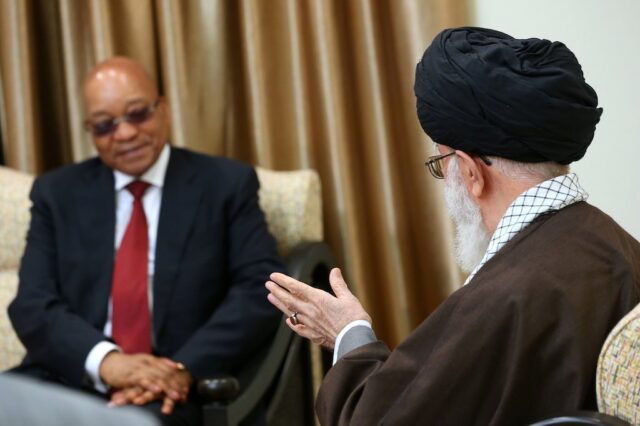
Late last month, Justin Lewis, a representative of the UK-based judicial rights group Casisa, sent a letter to Leo Brent Bozell III, President Donald Trump’s pick for U.S. Ambassador to South Africa, accusing South Africa of using its legal actions against Israel as a tool in a larger Hamas strategy.
Lewis, who is also investigating alleged corruption in South African banks tied to UK tax havens, claims the South African Department of International Relations and Cooperation offered legal support to Hamas before the October 7, 2023, attacks. His argument? Hamas’ non-signatory status prevented it from accessing the International Criminal Court (ICC) and the International Court of Justice (ICJ), making South Africa’s assistance all the more critical.
“As part of a political strategy, preparations were made before the October 7 atrocity against Israel to set mechanisms in place for approaching the ICC and ICJ for protection from Israel’s anticipated response,” Lewis charged.
The Department of International Relations and Cooperation has dismissed these claims as “univerified and baseless.” But given South Africa’s long-standing ties to Hamas, it’s hard to ignore the possibility of covert coordination to manipulate international law against Israel.
When South Africa’s ruling African National Congress (ANC) party launched its case against Israel at the ICJ in December, 2023, the party was drowning in millions of dollars in debt. Just two weeks later — following a visit by South Africa’s foreign minister to Iran, one of Hamas’ top supporters — those financial woes mysteriously vanished.
Last May, a group of 160 lawyers associated with Shurat HaDin, the Israel Law Center, asked Secretary of State Antony Blinken to investigate the claim that Iran may have bribed South Africa to file its anti-Israel case at the ICJ.
“The sequence of events strongly suggests that the ANC party’s financial woes were resolved by Iran as a quid pro quo for South Africa’s anti-Israel complaint,” the lawyers wrote.
It’s not clear whether the timing of the Iranian visit and the ANC’s sudden financial turnaround is a coincidence or something more. But when Nomvula Mokonyane, the ANC’s first deputy secretary-general, hosted the Iranian ambassador to South Africa last month, the timing seemed highly suspicious. Shortly after, South Africa dramatically increased its budget for the ICJ case.
That’s not all. As The National Interest reported, at the event, Mokonyane openly praised Iran, calling it a country that South Africa is “proud to associate with.” Just days later, the Johannesburg City Council made headlines by voting to rename the street housing the U.S. consulate after Leila Khaled, the notorious terrorist and the world’s first female hijacker. During the vote, a councillor shouted “we want Hitler” at a visibly Jewish colleague.
The Institute for the Study of Global Antisemitism and Policy also recently released a bombshell report identifying South Africa’s alarming ties with Hamas, Iran, Hezbollah, and Russia. The report highlighted South Africa’s involvement “in the global web of anti-democratic terror financing.”
It’s no surprise then that the Trump administration is eager to distance itself from South Africa.
In February, President Trump signed an executive order that condemned South Africa for “undermining United States foreign policy” and for “accusing Israel, not Hamas, of genocide in the International Court of Justice.” One month later, Secretary of State Marco Rubio declared South African Ambassador Ebrahim Rasool to the U.S. “persona non grata,” slamming him as a “race-baiting politician who hates America.”
This is the same Rasool who, in 2007, hosted Hamas leader Mohammed Nazzal in South Africa.
Since Rasool’s expulsion, South African President Cyril Ramaphosa has insisted that “South Africa remains committed to building a mutually beneficial relationship with the United States of America.”
If South Africa and Ramaphosa genuinely want to rebuild diplomatic ties with the United States, they must stop pretending that their cozy relationships with terror-linked regimes will go unnoticed and start reconsidering their decision to use lawfare against Israel, an American ally.
Perhaps this way, South Africa can begin to restore its global image as the “Rainbow Nation.”

